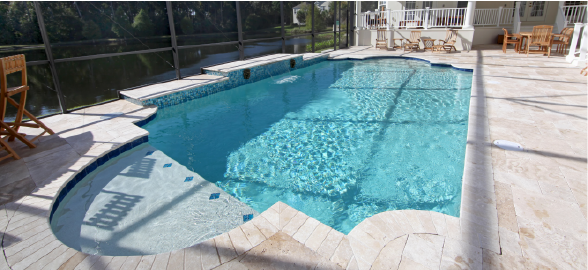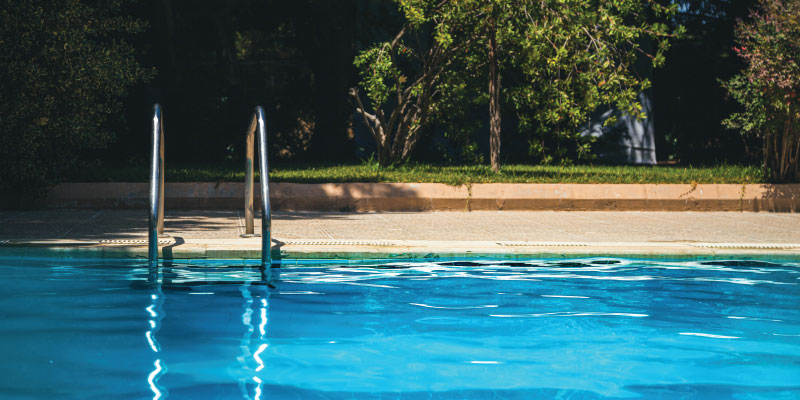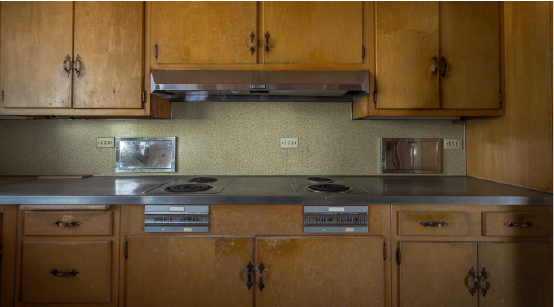
Updated December 13, 2021
Whether you have an inground pool or an above ground pool, or you're considering installing one, you've likely considered the different types of pool systems and which is best.
The two most popular pool systems are chlorine and saltwater.
Of course, you want your pool water to be clean and safe, but there are other considerations to take into account when deciding whether your pool should be a chlorine or saltwater pool.
Which water system is best for you depends on many factors, like overall costs, ongoing maintenance requirements, your desired return on investment, etc.
In this guide, we'll discuss:
- Differences Between Chlorine and Saltwater Pools
- Pros and Cons of Saltwater Pools
- Costs of Chlorine Pools vs Saltwater Pools
Find pool removal contractors near you

Differences Between Chlorine and Saltwater Pools
When people think about swimming pools, they typically think of chlorine pools, but there's more than one type.
Saltwater pools continue to become more and more popular and should not be overlooked.
Chlorine Pools
Chlorine pools cost less to install and maintain than saltwater pool systems.
However, chlorine pool systems require more upkeep in order to keep them clean and properly chlorinated.
You will need to add chlorine on a weekly basis, which comes in the form of a tablet, liquid, or stick.
Chlorine pools also need other balancing agents in order to counteract the chlorine and minimize potentially harmful effects.
Because chlorine fumes are dangerous, careful storage is necessary for safety.
A relatively high concentration of chlorine is required in these pool systems, which can be harsh on skin and hair, especially with regular exposure.
Saltwater Pools
With saltwater pool systems, you add salt to normal pool water.
Many people assume that saltwater pools are as salty as the ocean, but that's not the case.
These pool systems also are not completely chlorine-free as many people assume.
In saltwater pool systems, you don’t add commercial-grade chlorine, but due to the electrolysis process that these pool systems use, low levels of natural chlorine are still present.
During the electrolysis process, a generator converts the salt into the lowest level of chlorine possible in order to keep the water clean and achieve a balanced pH in the pool water without as much maintenance or chemicals as chlorine pool systems.
Saltwater systems are more expensive to install due to their complexity, and though maintenance is less frequent and doesn't involve as many strong chemicals, it is still the more costly pool system of the two options.
Keep reading:
- Is Your Pool Ready for Fall and Winter?
- Benefits of Removing a Swimming Pool: Why It's an Option Worth Considering
- Choose the Right Inground Pool Removal Method
Pros and Cons of Chlorine and Saltwater Pools

Chlorine Pools
Pros
- Less expensive upfront
- Requires less equipment
- Easier to potentially fix yourself
Cons
- More chemicals, like chlorine
- Harder on skin and hair
- Costs more on average to run
- Requires regular monitoring of water quality
Saltwater Pools
Pros
- Costs less on average to run
- Less work to maintain
- Less chemicals, like chlorine
- Easier on skin and hair
- Bigger return on investment
Cons
- More expensive installation
- Requires more equipment
- Higher electricity costs
- Must be repaired by professional
Find pool removal companies in your hometown
Costs of Chlorine Pools vs Saltwater Pools
Just like whether or not you install an inground pool or above ground pool affects pricing, so does the type of water system you choose.
Not only do initial installation costs vary, but so do the costs of regular maintenance and repairs.
Lower Initial Cost: Chlorine Pools
A chlorine pool system only costs around $100-$200 in addition to the pool's installation cost, whereas a saltwater pool system costs $2,500-$3,500 on average due to the complexity of the equipment.
Because the system is less complex, chlorine pool systems are less expensive to install than saltwater pools.
Lower Annual Maintenance Costs: Saltwater Pools
Unlike installation costs, saltwater pools typically only cost around $100-$300 per year to maintain, while chlorine pool maintenance can cost anywhere from $500-$1,000 on average per year.
In addition, saltwater pool generators require cells be replaced every few years, which typically costs $200-$700 on average.
Bigger Return On Investment: Saltwater Pools
Whether or not you’re planning on selling your home soon, it's important to consider which type of pool system offers the biggest return on investment.
Saltwater pools are more expensive upfront, but they're less expensive long-term due to lower daily running costs.
When installed with quality fixtures that withstand salt, you can increase your ROI to 100%.
If you have an old pool that needs to be removed and replaced, trust Hometown to help you find the right local expert for the job.
Find pool removal contractors near me
Learn more:


